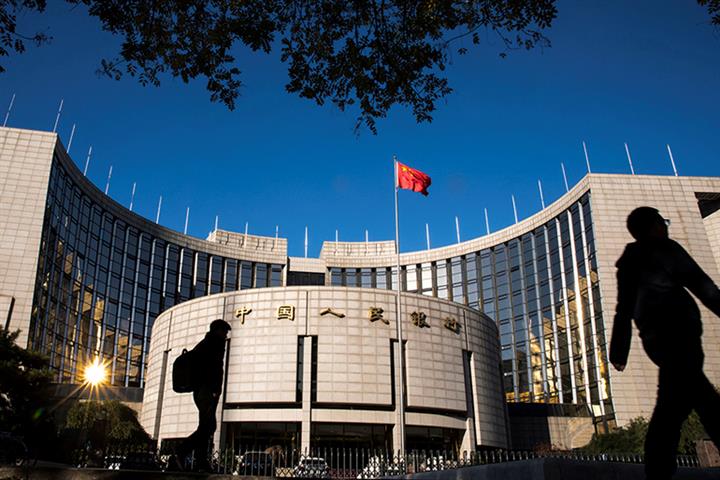 PBOC’s Reserve Requirement Ratio Cut Paves Way for Steady Market Growth Next Year, Participants Say
PBOC’s Reserve Requirement Ratio Cut Paves Way for Steady Market Growth Next Year, Participants Say(Yicai Global) Dec. 7 -- The decision by China’s central bank to cut the reserve requirement ratio for most banks for the second time this year should bring steady growth to the country’s stock market in 2022, according to senior participants, but much depends on individual investors.
The ‘spring market,’ which usually comes during the transition to a new year, may arrive earlier than usual, Zhong Zhengsheng, chief economist and head of Ping An Insurance’s research institute, told Yicai Global. The RRR cut should encourage risk appetite and capital allocation to boost growth stocks, Zhong said.
The People’s Bank of China announced yesterday that it will cut the RRR for major commercial banks by 0.5 percentage point on Dec. 15, releasing CNY1.2 trillion (USD188.5 billion) of liquidity into the interbank system to underpin economic growth. Next week’s cut will enable the banks to maintain a weighted average ratio of 8.4 percent.
The additional liquidity may take mainland stock indexes into a new upward cycle based on factors such as volatility, value, performance, and policies, according to Hu Yu, partner and director of Shenzhen Chengnuo Funds.
But any upturn could be short-lived without retail investors. The forces driving the market as the new year begins are rebounding valuations, steady growth, and a seasonal revival in individual investment appetite, said Fan Jituo, an analyst at Cinda Securities. The first two will see the market into January; the third would see it into March, Fan said.
In the face of an economic slowdown, a rebound in infrastructure investment is expected as China will enhance its financial support, said Wang Tao, director of Asian economic research at UBS. Thanks to vaccine boosters and better administration, the Covid-19 situation in the country could be eased, prompting consumers to spend the money they have saved for so long, Wang added.
The financial and property sectors are undervalued and that could lead to upward movement, said Hu at Shenzhen Chengnuo Funds. The Shanghai bourse’s main stock index tends to have a seven-year cycle. The next peak may come next year after the slump of June 2015, he noted.
China's mainland stock markets have thrived right before the new years of 2012, 2014, and 2018. Each time was backed by steady growth policies and in the following two months, blue chips doubled in value, according to Hu.
Editor: Emmi Laine, Xiao Yi